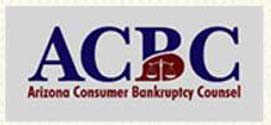
I am being harassed by creditors! What can I do to stop the calls?
There are ways of stopping annoying creditor calls, or at least minimizing them. Credit collection became so harassing that Congress passed the Fair Credit Collection Practices Act, 15 U.S.C. Section 1692.
Under the Fair Credit Collection Practices Act, a creditor may not call a borrower before 8:00 o’clock in the morning or after 9:00 o’clock in the evening. The creditor also may not contact any third parties such as neighbors or friends to ask questions about the borrower. Finally, the creditor is prohibited from calling the borrower at work, or from threatening the borrower with criminal prosecution.
While the Fair Credit Collections Act prohibits these things, an aggressive creditor may still do them.
What should a person do, short of filing bankruptcy, if a creditor persists with harassment? Every person has a right to stop annoying creditors. If a creditor is breaking the boundaries set by the law, the borrower should keep a record of each call.
The record should include the time of the call, who the borrower spoke with, the collector’s name and the name of the collector’s supervisor. The borrower should inform the collector that they are breaking the law under the Fair Credit Collections Act.
If the creditor does not stop and continues the harassment, the borrower should write to the creditor, and tell the creditor that pursuant to the 15 U.S.C. sections 15 U.S.C. 1692(c) and 805(c), they must stop all communication with the borrower, and the borrower’s family and friends. The borrower should state that he or she agrees to receive communication only in writing, only if and when the creditor decides to pursue any specific legal remedy against the borrower. The borrower should send the letter by certified mail/return receipt and keep a copy in a file.
If the creditor persists with annoying phone calls after the letter has been received, the borrower should contemplate filing a complaint with the Federal Trade Commission and the Arizona Attorney General’s office.
If the creditor writes to the borrower about the debt and the borrower does not agree with the amount of the debt, the borrower should write to the collection company as well as the original creditor and ask for a record of the amount that is being claimed. Once the record is received, the borrower is in a position to dispute the amount the creditor is claiming.
If the creditor persists in claiming the incorrect amount, and it reports the incorrect amount to the credit reporting agencies, the borrower should file a letter disputing the amount and explaining the dispute to the three reporting agencies, Experian, Equifax, and Transunion.
The borrower may also consider negotiating a settlement on the debt for less than full value. If the borrower can manage to save up a lump sum payment to offer on the debt, the collection agency will generally be willing to reduce the debt to less than full value. This is especially true if the borrower has experienced a recent hardship, such as illness or the loss of a job.
If the borrower finds it emotionally difficult dealing with creditors and collection agencies, it is better to call an attorney experienced with negotiating debt. Be wary of many debt settlement companies willing to provide this service. There is a lot of fraud in the debt settlement industry.
Many companies will put their clients on a payment plan with promises to reduce all the client’s debt by half and then fail to deliver on their promise. Many companies charge large fees for their services, so that a large portion of the payment that could have gone toward the debt actually goes to the debt settlement company for their services.
The Law Offices of Alice Vacek Aranda PLLC charges an affordable hourly rate to negotiate a debt settlement. The Law Offices does not make any promises to reduce a debt by a specific amount. Finally, it is up to the borrower to set up a payment plan to offer a lump sum payment toward the debt.
If a borrower has many debts or has a few large debts, bankruptcy may still be the best solution. Debt settlement works best if there are a few small debts. The Law Offices of Alice Vacek Aranda PLLC offers a free one half hour consultation to help map out a path that best meets a person’s needs.




